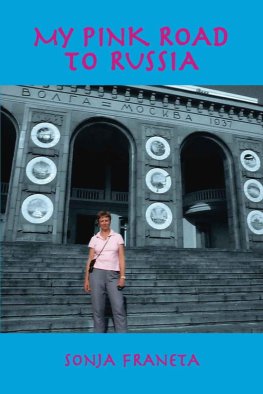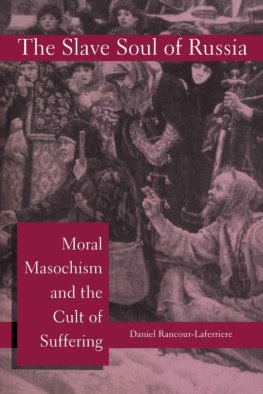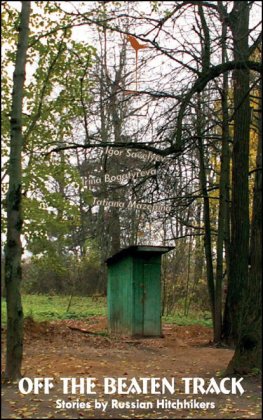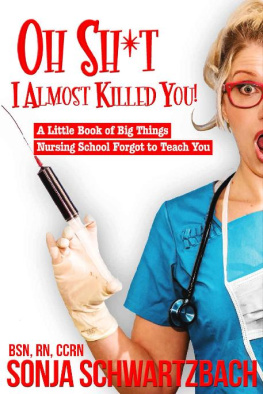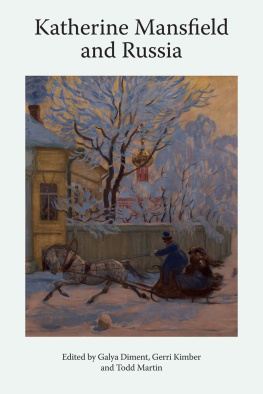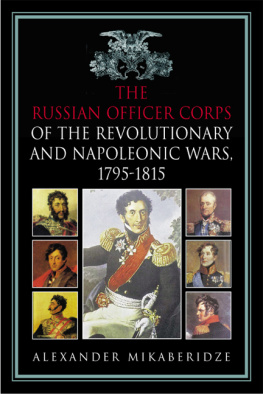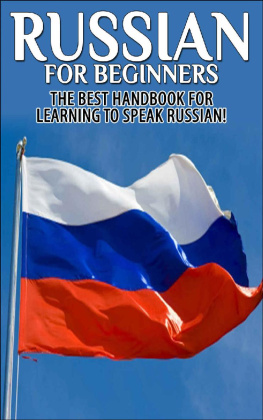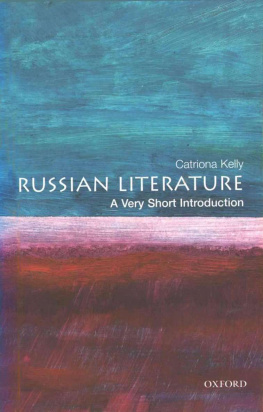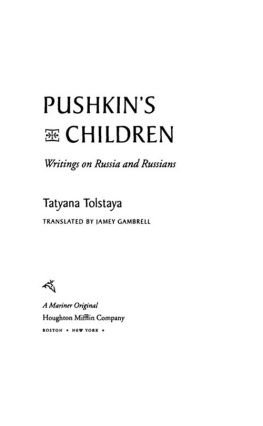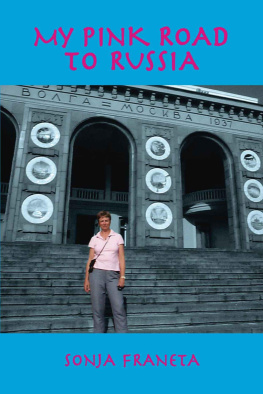Sonja Franeta - My Pink Road to Russia
Here you can read online Sonja Franeta - My Pink Road to Russia full text of the book (entire story) in english for free. Download pdf and epub, get meaning, cover and reviews about this ebook. City: Oakland, California, year: 2015, publisher: Dacha Books, genre: Non-fiction. Description of the work, (preface) as well as reviews are available. Best literature library LitArk.com created for fans of good reading and offers a wide selection of genres:
Romance novel
Science fiction
Adventure
Detective
Science
History
Home and family
Prose
Art
Politics
Computer
Non-fiction
Religion
Business
Children
Humor
Choose a favorite category and find really read worthwhile books. Enjoy immersion in the world of imagination, feel the emotions of the characters or learn something new for yourself, make an fascinating discovery.
- Book:My Pink Road to Russia
- Author:
- Publisher:Dacha Books
- Genre:
- Year:2015
- City:Oakland, California
- ISBN:978-0-9904928-0-1
- Rating:3 / 5
- Favourites:Add to favourites
- Your mark:
- 60
- 1
- 2
- 3
- 4
- 5
My Pink Road to Russia: summary, description and annotation
We offer to read an annotation, description, summary or preface (depends on what the author of the book "My Pink Road to Russia" wrote himself). If you haven't found the necessary information about the book — write in the comments, we will try to find it.
My Pink Road to Russia — read online for free the complete book (whole text) full work
Below is the text of the book, divided by pages. System saving the place of the last page read, allows you to conveniently read the book "My Pink Road to Russia" online for free, without having to search again every time where you left off. Put a bookmark, and you can go to the page where you finished reading at any time.
Font size:
Interval:
Bookmark:
Sonja Franeta
MY PINK ROAD TO RUSSIA
TALES OF AMAZONS, PEASANTS, AND QUEERS
For my sister, Gina
And for all those who shared their stories
What do you know and what do you just believe?
Linda Hogan, PowerIntroduction: An Invitation to Readers
Welcome to a book about some of the people and stories I have encountered on my life path. It is a collection of essays and memories of the journeys and thoughts of a Bronx lesbian with Slavic roots. I invite you to meet some of the wonderful queers, peasants, and Amazons I have encountered along my pink road to Russia. Rozovyi, the Russian code word for lesbian, is also in the title of my first book in Russian, Rozovye Flamingo (Pink Flamingos). And pinko is a pejorative word for socialist in English.
There are so many more stories I could have included in this book. For example, theres the time I went to a bathhouse in St. Petersburg with my friend Irina whom I had recently interviewed. Irina was heterosexual but very queer-curious, and liked to hang around with me and show me her great city, which had just changed its name from Leningrad, so people would often slip and call it that still. I imagined Irina the descendant of survivors of the Siege of Leningrad during World War II. What history I felt in that city!
We went to her favorite bathhouse in old St. Petersburg, and I followed her in her rituals, first washing with a bowl of warm water along a countered and mirrored wall, using soap and various rough scrubbers and oddly shaped sponges, then going into the dark multileveled steam room, where there were a few other women, all nude, with kerchiefs wrapped around their heads. One woman poured water regularly over some hot rocks for the steam effect. After being in the silence for a while, Irina and I went back to the main room, where we rinsed and scrubbed ourselves again and dried off with sheets we had been using. She had been coaching me in a low voice the whole time. Irina said I should follow her into the room next to the lockers to have some tea. And not get dressed? I asked. She said no and ushered me into a toasty but messy room with a table in the center where two other women sat, totally unselfconscious about wearing nothing but a kerchief. We were all women, after all.
As we sipped our tea, Irina talked with the other women as if she knew them from her regular visits. There were no introductions made; people didnt tend to do that in Russia the way we might do in the U.S. I sat quietly and listened, drinking my tea. Suddenly the door opened and I heard male voices. Two rough-looking guys in striped polyester workout jumpsuits came through the room rolling a big truck tire. What was going on? My first instinct was to cover myself, but the other women just continued talking. The men came in one door and went out another door, mumbling nonchalantly. It was not a voyeuristic thing, and the women did not seem perturbed in the least. This was a snapshot of early 1990s Russiaa naive innocence about sex and gender and a certain claptrap way of doing things.
Yes, many stories are missing, but the book holds many more in the form of memoir, fiction, poems, interviews, and a talk. The narratives are based on meetings and interviews I had with family members and with those I met on my travels. Experiencing another person, beyond the interview, can have a strong effect, as did my friendship with Irina, and many others.
I had become very interested in Russian culture because I studied it and because of my Slavic roots. My family came to the United States from Yugoslavia after World War II. I have yearned to know more about my parents backgrounds and what their lives and families were like before they settled in America. This search and my interest in Russia is not only an ethnic one but an interest in people telling their stories and what mattered to them. Also, I consider Russian queers to be family.
I have never lived a traditional life. I came out as a lesbian when I was twenty-five, and meanwhile became a political activist and continued into teaching English and living on a boat. All the while Ive been a writer. My calling is all this and more, not one thing.
I was born in the Bronx, near the water. The Harlem River was in the view of our house in my teenage years. I used to watch sunsets from the little porch from the Bronx side of the river, the sun blazing over Dyckman Street in Manhattan. After reading a book that described old New York as teaming with streams beneath all the concrete we have today, I realized the streams beneath it now help the water and sewer systems function. I think of water flowing out and throughout the globe. We are all connected.
Growing up in an immigrant Yugoslav family in New York City was not easy for a child of war survivors. My parents, who had been traumatized by the terror of World War II, as most survivors were, often spoke of their gratitude to be in America, the land of opportunity. In my early childhood, to make ends meet, my parents were superintendents of a six-story building in the Bronx. They worked hard and managed to save some money. When I was thirteen they bought a house several blocks away. They told me about it first because I was the oldest. When I found out which house it was, I was scaredit was known among the neighborhood kids as the haunted house. After my father modified it, and we and the upstairs renters inhabited it, that perception changed. Stories about my parents and their struggles are also included in this book.
I got married to escape my fathers violence. I had some time to rest and heal, only to come out as a lesbian when I met my first love on a trip to the Soviet Union in 1977. Although I had been dealing with my feelings for girls/women since teenage years consciously and subconsciously, this transforming moment happened many dreams later. Fortunate to have the support and community of the San Francisco Bay Area, I marched proudly in the historic 1978 Gay Pride March with my first girlfriend. I was in the Socialist Workers Party for the next twelve years.
After that I lived on a forty-foot boat in the San Francisco Bay. I had a hard time letting go of the boat life. The sea I came from the sea. I loved hearing the water sloshing against the boat, watching the bubbling water. I had a recurring dream as a teen that I was submerged in water, drowning, which I wrote about. I felt overcome by the water in the dream. I never understood what it meant. Not a nightmare, but a symbol of my life at the time perhaps, or where I came from, a memory almost, a state of mind, a lost life. We walk around with our memories.
I traveled and worked in Russia for most of the 1990s. I read Marina Tsvetaeva and discovered Sophia Parnok and other great Russian writers. In Russia I worked as an English teacher, and a project manager for a wheelchair program, and I organized a womens conference in Siberia, all the while researching queer life in Russia and the Soviet Union by doing interviews.
In 1996, I helped coordinate the First Queer Siberian Film Festival in Tomsk. Members of the San Francisco film community filmed the events and interviewed those involved; the festival had support from the LGBT film festival in San Francisco, Frameline, and even the Dutch Embassy. In 2004, my book, Pink Flamingos: Ten Siberian Interviews, based on interviews filmed with the help of Tracy Thompson and Douglas Conrad, appeared in Russian. At my book presentation in central Moscow at the headquarters of gay.ru (the most important queer Russian website), I was acknowledged as a sister and fellow activist. I was touched by the show of support for my book, the first about the hidden lives of Russian queers.
The stories in the third section of this book were written before the serious and violent repression of LGBT human rights by the Putin regime. There has been a backlash against the gains made during the 1990s, after the era of perestroika and the collapse of the Soviet Union. The Putin regime has instituted severe homophobic laws to curb freedom of speech and any open activities of gays and lesbians and transgendered people. The government, the Orthodox Church and various religious leaders have even endorsed all-out violence against sexual minorities. In addition, Putin has attacked other dissenters against the regime, one important example being the imprisonment of three Pussy Riot members for singing an anti-Putin song in an Orthodox church in Moscow. Isnt this reminiscent of Stalinism? Seeping out even to former Soviet Republics, the current fascist atmosphere in Russia is painful for those who have opened up and made lives for themselves. Meanwhile Putins policies are also responsible for the unfortunate war in the Ukraine. This war recalls the civil war in the former Yugoslavia and has been devastating.
Font size:
Interval:
Bookmark:
Similar books «My Pink Road to Russia»
Look at similar books to My Pink Road to Russia. We have selected literature similar in name and meaning in the hope of providing readers with more options to find new, interesting, not yet read works.
Discussion, reviews of the book My Pink Road to Russia and just readers' own opinions. Leave your comments, write what you think about the work, its meaning or the main characters. Specify what exactly you liked and what you didn't like, and why you think so.

